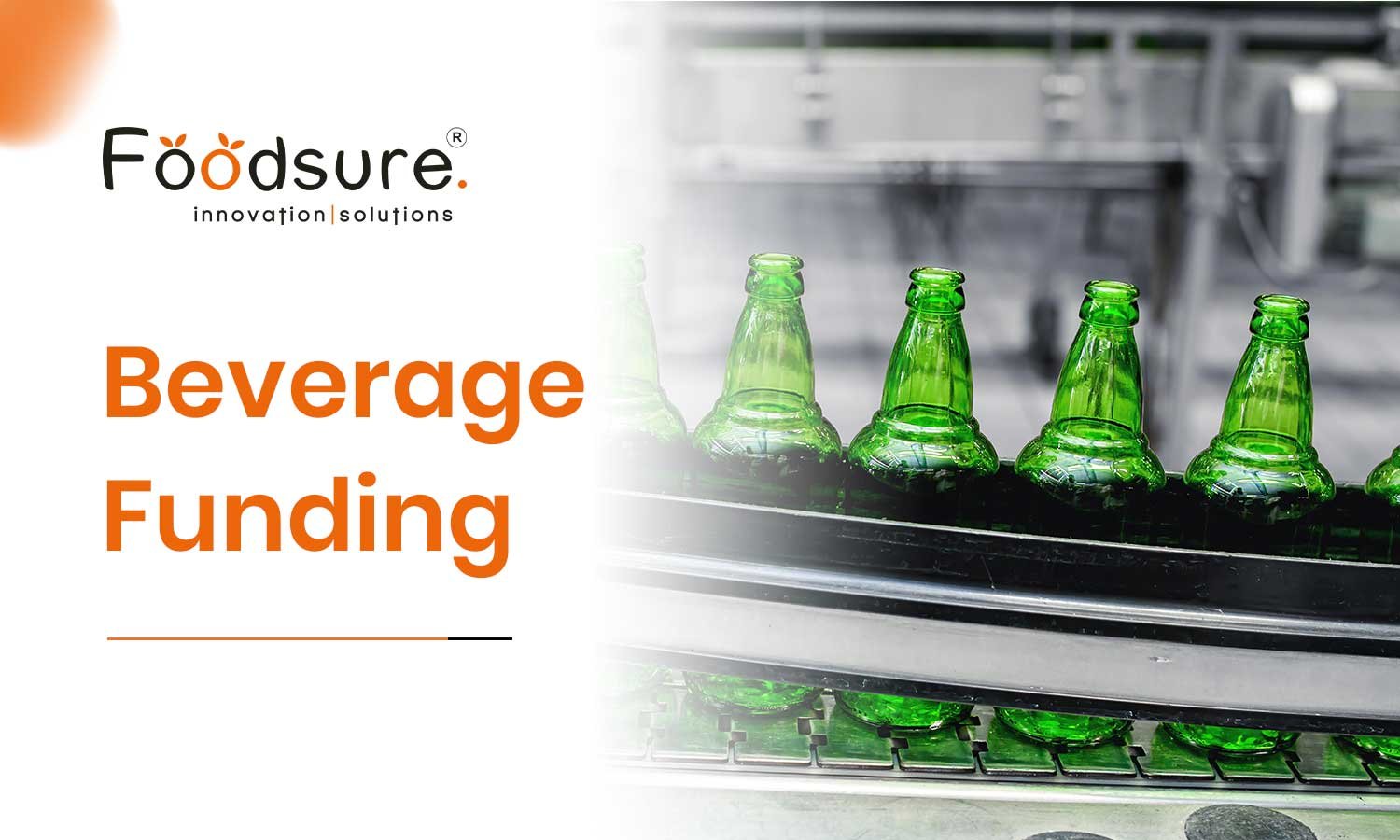Blog Insights
- Always include market data and consumer insights in your funding pitch.
- Market research for beverage startups, data, and facts are the key factors.
- Validate your product with testing, feedback, and R&D findings.
- Align your product with the growing beverage industry trend.
- Investor Pitch for Beverage Business.
- Use visuals and third-party sources to support your story.
Starting a beverage brand is thrilling. It is all about new ideas, creative flavors, and exciting branding. But when it comes to getting beverage funding, that’s where things often slow down. Here’s the real deal: Investors don’t fund ideas. They fund proof. And that proof doesn’t come from passion or packaging. It comes from research, data, and real numbers. Yes, this is the key to getting success. This is your chance to build a plant-based energy drink, a low-sugar hydration formula, or a clean-label juice brand; whatever your idea is, Beverage funding is required at its peak. Thus, you must prove that people want it, the market needs it, and it can make money.
Is Your Beverage Ready for Success?
Leverage our Beverage Formulation services to create a product that’s built for growth and success!
Market Research Is the Key to Beverage Funding
Insights that can blow your mind, why research is the main aspect. Let’s discover, according to CB Insights, 38% of startups fail because they run out of money — often because they never convinced investors with strong data.
But when you walk into an investor pitch for a beverage business, go with:
- Actual market research for beverage startups stats
- Real customer feedback,
- Proven unit economics, and
- Clear growth potential based on industry trends…
This is a smart game. You don’t just tell investors you’re ready — you show them. For example, the global functional beverage market is expected to hit $200 billion by 2027, growing at over 7% CAGR. That’s not just a trend — that’s a funding opportunity for you.
So, how do you gather the right data, and how do you use it to get your dream investor to say “yes”?
Let’s break it down, step by step, and help you build a pitch backed by proof, ways to attract investors in the beverage industry.
1. Show You Understand the Beverage Market
Market research for beverage startups is the backbone of a strong funding pitch. Investors want to know:
- How big is the market?
Example: The global functional beverage market is expected to reach USD 200 billion by 2027, growing at a CAGR of 7.1% (Source: Fortune Business Insights). - Where is the opportunity?
Is it in plant-based beverages, gut-health drinks, low-sugar formulations, or energy boosters? - Who are the competitors?
What are the gaps in the market? What are consumers complaining about?
Tip: Use Google Trends, Mintel, Statista, and Euromonitor to gather updated beverage industry data.
2. Back Your Claims with Consumer Insights
Fundraising for Beverages is not as easy as it sounds; this needs perfection. It’s not enough to say, “People love healthy drinks.” You need real, actionable data.
- Conduct small-scale surveys using Google Forms or Typeform.
- Use Instagram polls, Reddit, or beverage-related communities to validate demand.
- Highlight key consumer preferences:
- “65% of Gen Z consumers prefer beverages with added functional benefits.”
- “47% of urban millennials are looking for low or no-sugar alternatives.”
These insights help prove there is real market demand for your product idea.
3. Use Product Testing & R&D Results
Investors love to see that your product isn’t just an idea — it’s been tested.
- Share early-stage product testing data.
- e.g., “80% of testers preferred our flavor over the top 2 market leaders.”
- Highlight R&D breakthroughs
- e.g., “We used clean-label adaptogens and achieved a 9-month shelf life without preservatives.”
This builds confidence that your product is ready to scale.
4. Craft a Data-Driven Beverage Business Plan
A solid beverage business plan powered by research is a must-have. Include:
- TAM, SAM, SOM analysis (Total Available Market, Serviceable Available Market, Serviceable Obtainable Market)
- Sales forecasts based on real data
- Unit economics and margins
- Realistic scaling roadmap and bottling/manufacturing plans
Use market benchmarks to validate your projections.
5. Present Beverage Industry Trends to Show Timing
Timing matters. Investors want to see if your product aligns with current beverage industry trends:
- Rise in functional beverages (immunity, hydration, stress relief)
- Growth in RTD (Ready-to-Drink) formats
- The popularity of natural sweeteners and zero-sugar innovations
- Spike in sustainable packaging demand
Tie your product directly to macro trends to show you’re riding the wave — not fighting it.
6. Use Competitive Benchmarking
Research what similar beverage brands have done and raised:
- Example: “Brand A raised $1.2M in seed funding after reaching 10K units/month.”
- Highlight what you’ve done better: taste, price point, packaging, or formulation.
This shows that your business is built on strategic insights, not guesswork.
7. Visualize Your Data for Better Impact
When pitching investors, presentation is key:
- Use charts, infographics, and consumer data visuals
- Add before-and-after comparisons (e.g., current market vs. your solution)
- Include a one-pager that summarizes all key numbers in simple terms.
Investors love clean, data-driven storytelling. Make your numbers speak for you.
| Section | What to Include |
| Executive Summary | Headline data, vision, market opportunity |
| Market Opportunity | Size, growth trends, segmentation, competitor analysis |
| Product & Value Proposition | Unique features, validation data, pricing, positioning |
| Go-to-Market Strategy | Target customers, marketing/sales channels, initial traction |
| Financial Projections | Data-backed revenue/cost estimates, profit margins, key metrics |
| Team | Experience, track record, relevant expertise |
| Risk Factors & Mitigation | Data-driven discussion of challenges and contingency plans |
8. Bonus: Add 3rd-Party Validation
- Cite industry reports (e.g., FICCI, Food Navigator, Mintel)
- Include feedback from mentors, consultants, and food technologists.
- Highlight early retail interest or e-commerce traction.
External validation builds investor trust.
Conclusion: Numbers Don’t Lie — They Sell
The current competition is too tough, and to stand out, you need to be smart with the latest updates. As we all can see that investors are flooded with pitches. So if you want to shine, you need more than passion — you need proof. And the proof comes from research and data.
From market size to consumer feedback, from product testing to competitor gaps — everything you learn becomes a tool to build trust and raise beverage funding. So before you pitch, research hard, collect data smartly, and present wisely. That’s the real formula behind getting your beverage brand funded.
And if you need any help or expert guidance, Foodsure is always helpful for you. Contact us now at +91 8130404757 and get ready for the brand success.
FAQs
Q1. Why is research important before asking for beverage funding?
Because investors want proof, not just a cool idea. Research shows them that people actually want your drink, the market is growing, and your brand can make money. It builds trust and makes you look ready for business.
Q2. What kind of data do investors look for in a beverage startup?
They look for things like:
- Market size and trends
- Consumer preferences
- Competitor analysis
- Product testing feedback
- Sales numbers or early traction
This tells them your idea is real, in-demand, and worth investing in.
Q3. Do I need professional research reports to impress investors?
Not always. If you’re early-stage, simple surveys, real customer feedback, and free tools like Google Forms, Typeform, and trend reports are good enough to start. Just make sure your data is real and easy to explain.
Q4. Can strong data really help me raise more money?
Yes — big time! Data proves that your drink has a future. It lowers the risk for investors and helps you raise faster and often even at better terms. A well-researched brand looks more serious and ready to grow.
Q5. What is the easiest way to show demand for my beverage idea?
You can start small. Share samples with friends, local stores, or online communities and collect honest feedback. Even 50 to 100 real responses can prove that people like the taste, packaging, or concept. Investors love seeing real interest, even at a small scale.
Q6. How much data is enough for a good investor pitch?
You don’t need thousands of data points. A few clear numbers about market size, customer interest, and test feedback is enough to start. What matters more is that your data is accurate, simple to explain, and directly connected to your drink’s potential.
Q7. Should I test my beverage before asking for funding?
Yes, testing helps a lot. Even a basic small batch test with 10 to 20 people can tell you what to improve in taste, sweetness, or packaging. When you show investors that you tested and improved your product, they trust your process more.
Q8. Can social media really help me gather useful data?
Absolutely. Platforms like Instagram, YouTube, and even WhatsApp groups can give quick insights. You can run polls, ask simple questions, or share early designs. This free feedback often becomes your strongest proof of real consumer interest.
Q9. What if my research shows weak demand — should I still pitch?
Weak demand is not a failure. It simply means you need to adjust your recipe, target a different audience, or improve your value proposition. Investors appreciate honest founders who test early and refine fast. A better product after research is more fundable than a weak product with no data.






